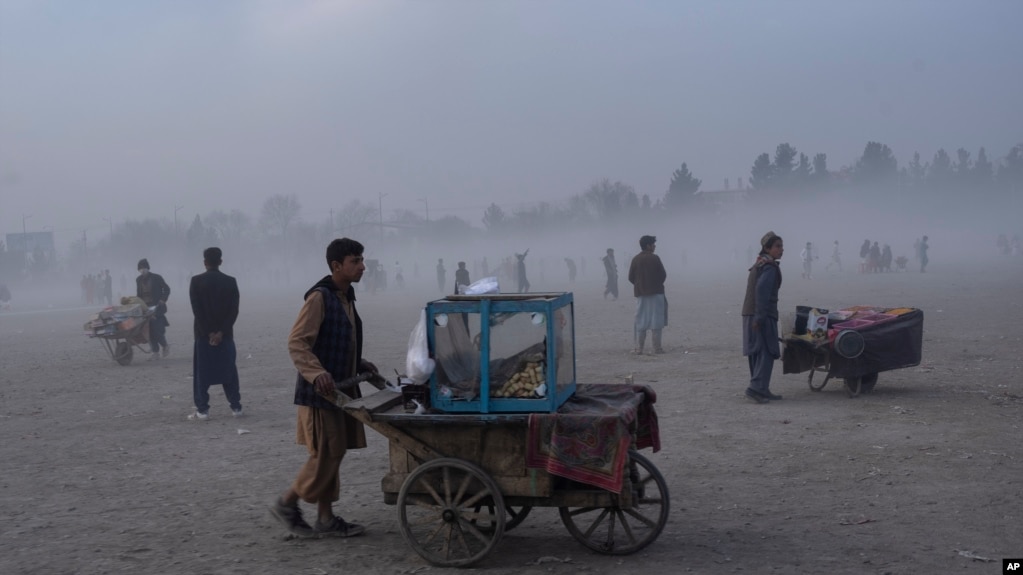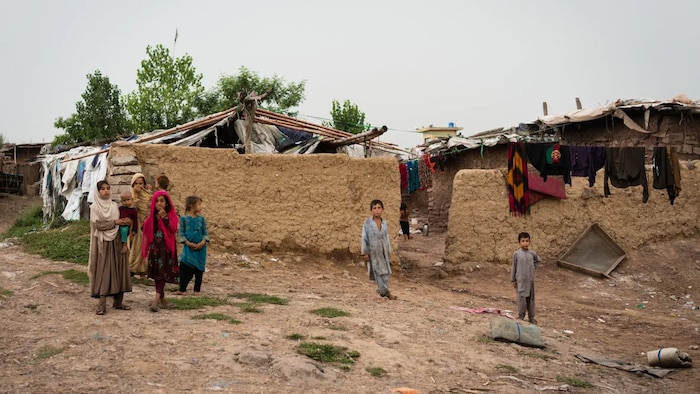The Desperate Plight of Afghanistan's Indigent Poor
"We need to separate the politics from the humanitarian imperative.""The millions of women, of children, of men in the current crisis in Afghanistan are innocent people who are being condemned to a winter of absolute desperation and potentially, death."Mary-Ellen McGroarty, director for Afghanistan, World Food Program?The humanitarian crisis is escalating daily in Afghanistan. Hunger in the country has reached truly unprecedented levels.""Nearly 23 million people—that is 55 percent of the population—are facing extreme levels of hunger, and nearly nine million of them are at risk of famine.""One single mother that I met, she has a six-month-old baby, a 12-year-old son, a 10-year-old daughter, and two parents to look after because the husband died in the fighting. So, she has to take care of the full family…Her children go hungry. So, the two kids, the 12-year-old and the 10-year-old—they have to work."UNHCR spokesman Babar Baloch"People are impoverished here. Yesterday I saw a woman who was going through the rubbish bins at the local hotel, collecting the leftover food.""I asked her why she was doing so and she said she didn't have any other solution, she was trying to find food for her children."Resident of Kandahar
 |
| Street vendors push their carts in Chaman-e-Hozori park, Kabul, Afghanistan, Dec. 3 , 2021. |
Women in towns and villages in southern Afghanistan bring their famished children folded into their burqas to clinics, walking long distances through a parched landscape in the process, hoping to be given medication and food for the children. Most families have been reduced to once-daily meals and even the ingredients for that sparse diet have become scarce thanks to failed harvests, dry wells and shopkeepers refusing further credit for flour.
On the brink of mass starvation aid groups fear threatens to take the lives of a million children this winter, the future for people in the country looks bleak. The dire societal problem of malnutrition has haunted the country for decades, but the current hunger crisis is dramatically worse, leaving an estimated 22 million people representing over half the population, susceptible to starvation. Life-threatening levels of food insecurity looms on the near horizon.
According to an analysis by the United Nations World Food Program and Food and Agriculture Organization, 8.7 million Afghans are facing famine, representing the most extreme stage of a food crisis. It is precisely this widespread hunger that reflects the most devastating symptom of the country's economic failure that has overtaken Afghanistan since its violent takeover by the Taliban.
Virtually overnight billions of dollars in foreign aid that had supported the previous government disappeared, while U.S. sanctions on the Taliban isolated the country from the global financial system, freezing Afghan banks and impeding reief work by humanitatian organizations. Millions of Afghans; day labourers to doctors and teachers have been months without incomes as food prices and other goods have soared.
 |
People in the Afghan Village refugee camp in Islamabad live in shacks with no running water or electricity. Photo: (Jared Thomas/CBC) |
Malnutrition wards of overcrowded hospitals have taken in emaciated children and their anaemic mothers. The hospitals themselves are ill equipped, with a shortage of medical supplies once provided by donor aid. At the same time, the country is in the grip of one of the worst droughts in decades. Humanitarian groups warn that as the lives of a million children are imperilled, the United States faces mounting international pressure to ease economic restrictions on the country.
The hunger that threatens Afghanistan is reflected elsewhere, as similar situations arise around the world, driven by the pandemic, by conflict, and by climate-related events. Crisis-level food shortages face 30 percent more Afghans compared with the same period last year. "It was never this bad", head doctor Sifatullah Sifat at the Shamsui Haq clinic on Kandahar city's outskirts stated, as malnutrition cases doubled in recent months. "Donors are shipping in medicine, but it's still not enough."
"They are crying to have food", said 20-year-old Zarmina, her 18-month-old son in her arms, her 3-year-old daughter standing behind her; a family that has survived mostly on bread and tea since her husband's day labourer work dried up. "I wish I could bring them something, but we have nothing."
The international community grapples with the dilemma of what action to take to avert a human disaster in the country while bypassing the new regime in fears of giving it legitimacy through the removal of sanctions or placing funds directly into the hands of the Taliban.
 |
| FAO/Hashim Azizi A farmer sows seeds he received from FAO wheat seed distribution in Kandahar in Afghanistan. |
Labels: Afghanistan, Food Insecurity, Malnutrition, Poverty, Sanctions, Starvation, Taliban
0 Comments:
Post a Comment
<< Home